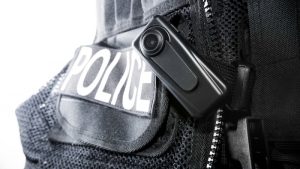In a bid to improve emergency communications in New York State, Gov. Kathy Hochul pledged $45 million in state funding to improve the operability of emergency communications statewide.
The Nebraska State Patrol (NSP) has launched a new drone program to quickly and efficiently clear roadways while conducting thorough crash investigations.
The Fire Department of the City of New York (FDNY) has launched a new computer-aided dispatch system (FireCAD) to replace its now-retired STARFIRE system, Business Wire reported. The system was launched with the help of professional services firm Accenture, which designed and developed the platform.
Federal Communications Commission (FCC) Acting Chairwoman Jessica Rosenworcel announced that the FCC is entering into partnerships with 11 Federal, state, and local agencies to assess the delivery of Wireless Emergency Alerts in areas across the country during a planned nationwide test on August 11.
In a move to help increase law enforcement accountability, the Department of Justice (DoJ) announced that the Bureau of Justice Assistance (BJA) is releasing $7.65 million in a competitive microgrant grant solicitation that will fund body-worn cameras (BWCs) to any law enforcement department with 50 or fewer full-time sworn personnel, rural agencies, and Federally-recognized Tribal agencies.
Penn State University Police and Public Safety (UPPS) announced that it has adopted the First Responder Network Authority (FirstNet), a dedicated nationwide broadband network for public safety organizations.
The National Highway Traffic Safety Administration (NHTSA) published a solicitation for collaboration efforts on the design, implementation, and operation of a nationwide geographic information system (GIS) data store as a means to create and adopt technical and operational requirements for a national interconnected 911 landscape.
A University of Southern California (USC) research institute is establishing the first public database for police officer firings and resignations through the creation of a national registry to track police conduct.
The unprecedented events of 2020 caused increased public records requests for COVID-19 data and information about crisis planning and processes. The types of requests are becoming more complex for health departments, law enforcement, and public safety agencies. Additionally, the rush to remote work during the pandemic led to inaccessible, non-digitized records, increasing the time to release.
The Department of Justice (DoJ) announced that it will allow state, local, territorial, and tribal task force officers to use body-worn cameras on Federal task forces nationwide.













